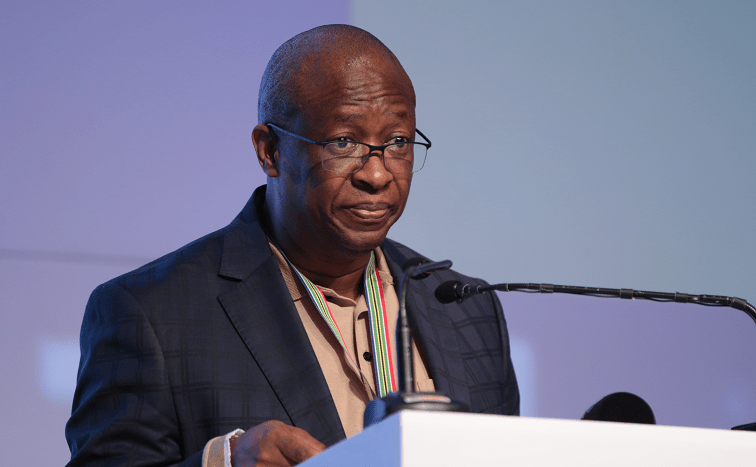Maintaining the integrity of South Africa’s elections remains a priority as the country heads to its milestone seventh democratic election.
The Independent Electoral Commission (IEC) remains at the centre of ensuring that the elections are free, fair and credible.
But recent events have threatened to undermine the process. The IEC sought to address these concerns at a media briefing on Monday evening.
Just hours after the IEC’s deadline for submissions for political parties, social media was abuzz with news of what was contained in the African National Congress (ANC) and newly formed, uMkhonto we Sizwe (MK) party leaked candidate lists.
This saw the governing party’s Secretary-General, Fikile Mbalula, write to the IEC calling for an investigation into the unauthorised disclosure of the information.
The electoral body has since conducted an inquiry and found that the leak was internal. The IEC staffer responsible has been asked to furnish the Commission with reasons why they should not be dismissed.
Chief Electoral Officer, Sy Mamabolo explains, “The Commission is able to provide a preliminary report as follows, the investigation has narrowed the source of the disclosure to a workstation that has been used to generate and store those reports. later the said reports were deleted from the workstation. earlier today that workstation was secured and imaged in the presence of the officials whose credentials were used to generate the reports.”
This is not the only matter that has thrust the IEC into the spotlight. Despite the body maintaining a clean track record for its ability to hold elections, the Democratic Alliance (DA) has sought foreign intervention.
The party wrote a letter to the US Secretary of State, Anthony Blinken, requesting the US Government to observe the May 29th polls. The official opposition has received backlash following its letter from different sectors.
Mamabolo says the approach by the DA is unconventional and emphasised the need to respect the democratic process of South Africa’s elections.
“We are alive to the fact that the letter by the DA is directed to an executive in another country. That’s not how, ordinarily, the observation process works. Often, the observation works at the multi-lateral level – such as at the AU level, SADC level, Commonwealth level, and … and in the past invitations have been extended to those multi-lateral bodies to come and observe the elections. All role-players need to be aware of the need to preserve the integrity of democratic processes in their respective countries.”
As the election draws closer, it is expected that political parties will have numerous legal tilts. The electoral body says it will abide by the court ruling which is expected to dictate a way forward in the matter between the ANC and the uMkhonto Wesizwe party.
The two political organisations will battle it out in the Electoral Court next week. The governing party says the registration of the MK party is unlawful.
The MK party was registered in September last year by Jabulani Khumalo and will contest the May general elections. The ANC’s lawyers have previously sent a letter to Khumalo demanding that he desist from using the uMkhonto we Sizwe logo and trademark. The governing party argues that the use thereof may lead the public to believe that the MK party is connected to the governing party.
The MK name was associated with the ANC’s armed wing during apartheid. Mamabolo says the electoral body would take direction from the court.
“We are in the hands of the courts, we have said all that we needed to say in terms of our filing in the court. whichever way the court calls the matter, we’ll take that to be the position going forward.”
Meanwhile, Mambolo also stressed that the voters’ roll will be certified on Tuesday and is expected to contain over 27.7 million eligible voters.
The certified list will be published by the IEC and will be available in all the provinces and in all the offices of the municipalities.

